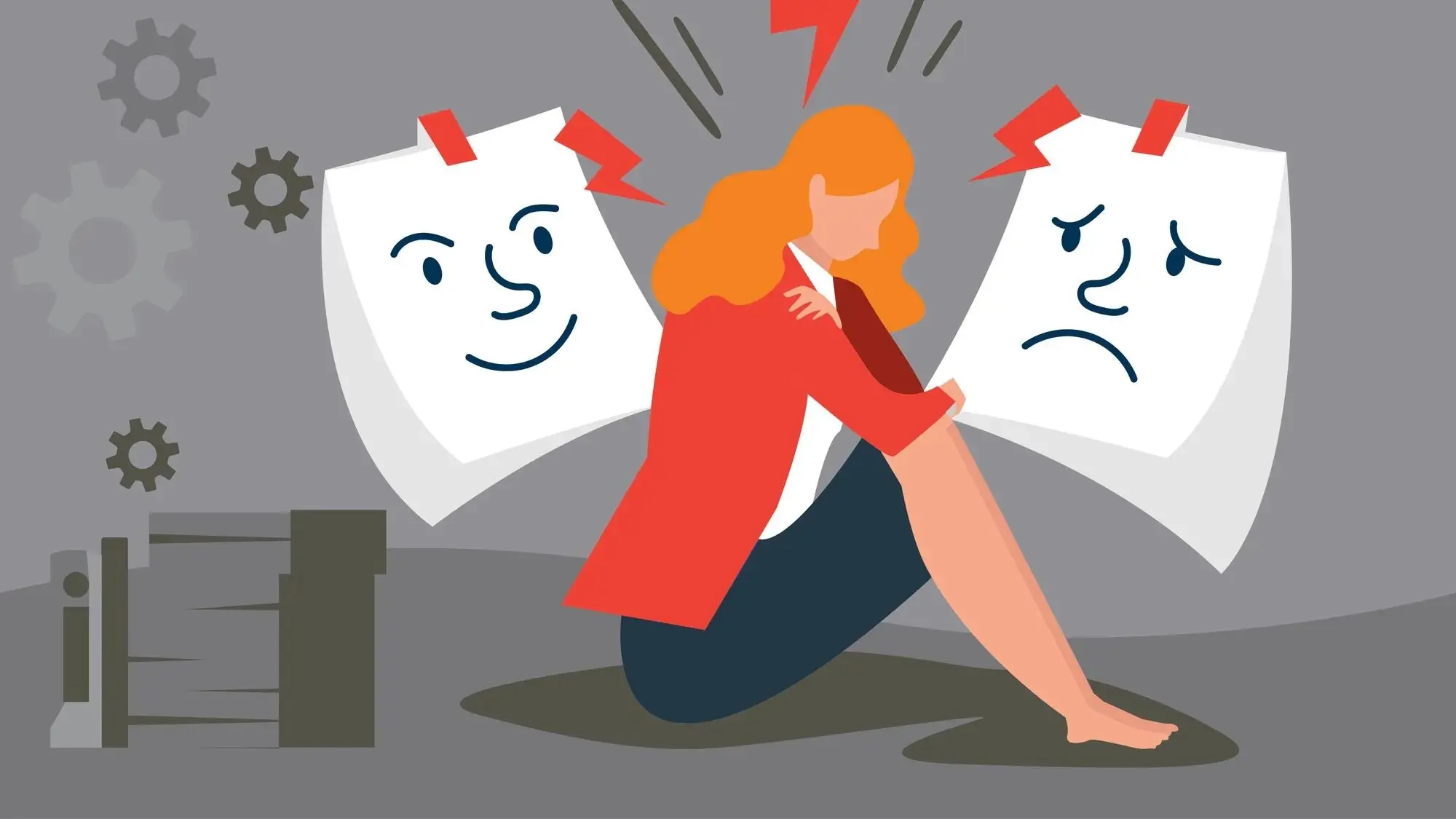
If You’re Still Smoking Weed at 30, Scientists Have Bad News
Marijuana is gradually becoming more widely accepted around the world. Whether it's for medical reasons, anxiety relief, or recreational use, an increasing number of people are embracing the plant. However, recent studies raise questions about whether it is a good idea for adults—especially those over the age of 30—to use it. The findings suggest that people in this age group may want to reconsider their habits.

Smoking Marijuana After 30 Might Not Be a Good Idea
Are you over 30 and enjoy smoking marijuana from time to time (or regularly)? Well, recent research conducted in Australia suggests that you might want to think twice before continuing. Researchers studied the life outcomes of marijuana users, and the results for adults aged 30 and older weren’t particularly promising. (1)
A team from the University of Queensland investigated the long-term success outcomes of both amphetamine and marijuana users. They analyzed data from over 8,000 mothers and 2,000 children regarding drug use at ages 21 and 30. What they found was that marijuana use led to lower success rates in nine key areas, including:
-
Education
-
Income
-
Homeownership
-
Relationship status
-
Reported happiness
However, the most significant discovery was that these lower success rates only applied to those who continued using marijuana after the age of 30.
The Study’s Limitations
Before you get too concerned that you need to quit smoking marijuana by the time you turn 30 (or that you should have already), don’t worry too much. The study has a variety of limitations that suggest that its findings may not necessarily apply universally.
1. Strange Data
First, it's important to note that this data comes from Australia and is made up entirely of female mothers. It’s also highly localized and may not reflect the experiences of people from other countries. Some of the data even dates back to 1981, which could be outdated and not applicable to today’s global population. (2)
2. Markers of Success
Another limitation is the criteria the researchers used to define "success." For example, two key markers were homeownership and relationship status. Both of these factors can be influenced by cultural and geographical considerations. Owning a home, for instance, has more to do with individual priorities and location than it does with one’s overall success. Additionally, factors like whether or not someone has a family or has chosen to settle down in a particular area can play a significant role. With the rise of the digital nomad lifestyle, homeownership no longer universally equates to success.
Relationship status is another subjective marker when it comes to success. This could also be heavily influenced by cultural and geographical factors. There are plenty of successful single people in the world, just as there are couples who struggle in various areas of life. While being in a relationship may be part of one’s personal definition of success, it doesn't necessarily indicate success for everyone.
3. Other Drug Use
The study didn’t account for whether the individuals with poor outcomes were also using other substances, such as ecstasy, opiates, or synthetic drugs.
“We do not have adequate data on other illicit drugs that may be being used, for example, ecstasy, opiates, and even synthetic drugs,” the researchers acknowledged in their report. “A subset of those using cannabis as well as amphetamines may also be using a range of other drugs, and it may be that our findings reflect polydrug use rather than the specific use of cannabis and amphetamines.”
What Does This Mean for You?
Ultimately, the study suggests that experimenting with drugs during your youth doesn’t necessarily mean you will end up an unsuccessful adult. However, it does highlight that marijuana usage should not evolve into a dependency. Overusing marijuana as an adult can potentially affect various aspects of life, including work performance, relationships, and overall stability.
So, if you enjoy using marijuana, go ahead—but be mindful of not overdoing it. Ensure that it doesn’t take over your life. If you notice a decline in motivation, find yourself spending excessive amounts of money on it, or it starts to interfere with work or personal responsibilities, it may be a sign to consider reevaluating your habits or even quitting altogether.
Additional Considerations
It’s important to recognize that the effects of marijuana can vary greatly from person to person. While some may experience minimal negative consequences, others may face more significant challenges. Beyond the issues discussed in the study, long-term marijuana use can affect cognitive functions, such as memory and learning, especially for those who begin using it at a younger age. Therefore, individuals who are using marijuana should weigh the potential long-term impacts on their cognitive and emotional well-being, particularly as they continue to age.
Furthermore, as marijuana becomes more mainstream, there’s a growing need for more research into its long-term effects on different age groups. Studies that look specifically at the impacts on older adults—especially those over 30—are critical for understanding how marijuana use can fit into a healthy lifestyle. Until then, it’s wise to stay informed and make decisions based on both personal experiences and scientific findings.
Marijuana use doesn’t have to be harmful, but like any substance, it should be used with caution and awareness.
News in the same category


Preventing Nighttime Leg Cramps: Causes and Solutions

3 Phrases Narcissists Commonly Use, According to a Psychologist

Man Goes Viral Due to Severe Head Lice Infestation

Discover the Healthiest Fruit on the Planet: What Happens When You Eat Dates

6 Warning Signs That You’re Not Getting Enough Vitamin D

7 Warning Signs of Liver Damage You Shouldn’t Ignore

Chewing Gum Releases Microplastics Into Saliva – Even Natural Gums Are Not Safe, Study Finds

STUDY SHOWS SWITCHING TO PERSONAL CARE PRODUCTS WITHOUT CERTIAN PRESERVATIVES TURNS BREAST CANCER GENES OFF IN 28 DAYS

Study finds that eating one common 'superfood' could cut Alzheimer's disease risk by almost 50%

Side Effects and Dietary Recommendations Post Gallbladder Surgery

Signs You May Be Living With High-Functioning Anxiety

How to Know if You Have Fibromyalgia + 8 Natural Approaches to Relieve

Dark eye circles might be a subtle health warning

Could This 3D-Printed ‘Electronic Glove’ Keep Your Heart Beating Forever?

The Amount Of Time You Spend Peeing Could Be A Warning Sign For Bigger Health Issues

Scientists may have finally developed pill to cure deadly disease with 90% mortality rate

Man Shares His 'Proof' of Life After Death and the Seven 'Stages' of the Afterlife

Dental Expert Reveals the Top Two Brushing Mistakes That Lead to Yellow Teeth

They Hid This From Seniors: It Unclogs Arteries INSTANTLY!
News Post

Age Spots: Causes, Prevention, and Effective Treatments

Preventing Nighttime Leg Cramps: Causes and Solutions

3 Phrases Narcissists Commonly Use, According to a Psychologist

Man Goes Viral Due to Severe Head Lice Infestation

Discover the Healthiest Fruit on the Planet: What Happens When You Eat Dates

6 Warning Signs That You’re Not Getting Enough Vitamin D

Sons Abandon Old Mom in Nursing Care & Sell Her House, New Owner Returns Her Home Keys Later – Story of the Day
Blinded by greed and love for money, an elderly widow's sons kicked her out of her own house, sold it, and sent her to a nursing home. A few days later, the new homeowner returned her home keys with a heartwarming note that made her hug him and cry.

5 Powerful Leaves That Boost Eye Health Naturally

7 Warning Signs of Liver Damage You Shouldn’t Ignore

Chewing Gum Releases Microplastics Into Saliva – Even Natural Gums Are Not Safe, Study Finds

STUDY SHOWS SWITCHING TO PERSONAL CARE PRODUCTS WITHOUT CERTIAN PRESERVATIVES TURNS BREAST CANCER GENES OFF IN 28 DAYS

Study finds that eating one common 'superfood' could cut Alzheimer's disease risk by almost 50%

I Became a Burden to My Father after I Lost the Ability to Walk

I Was Stunned When the Teacher Said All the Kids Talked about How Amazing My Husband Was on Father's Day, I'm a Widow

Side Effects and Dietary Recommendations Post Gallbladder Surgery

I Bought a Vintage Blazer at a Thrift Store for My Mom, But the Note Inside Revealed a Secret She Kept for 40 Years

Signs You May Be Living With High-Functioning Anxiety

How to Know if You Have Fibromyalgia + 8 Natural Approaches to Relieve

Dark eye circles might be a subtle health warning
